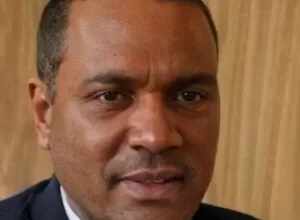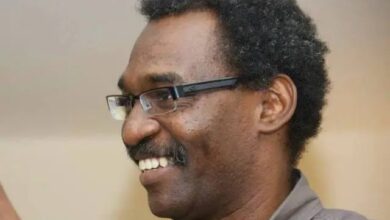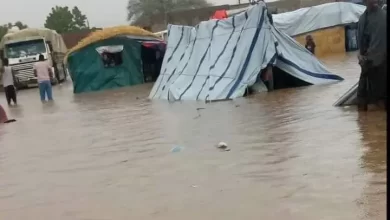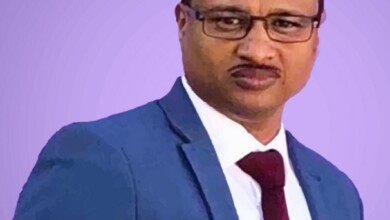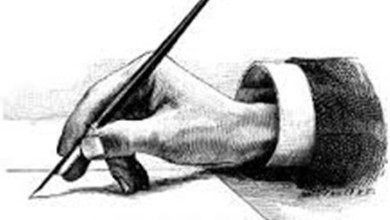A Childish farce in the courtyard of the ICJ
Dr. Al-Waleed Adam Madibo

Nothing arouses pity like the sense of helplessness that adorns the military uniform (Ibrahim Barsi). The “Salvation (Inqaz) Gang” spared no effort in sowing discord amongst the peoples of Dar Masalit (Masalit, Aringa, Arabs, Zaghawa.. etc.) from the very first day, when they attempted to undermine the authority of Sultan Abdulrahman Bahar al-Din (may God have mercy on his soul). However, the latter confronted this particular campaign —which took place in 1994— with his pride and the wisdom of his forefathers, who didn’t differentiate between the components of the government. He put forth efforts to strengthen national unity, enabling him to confront the Central government’s attempts at ethnic and tribal polarization.
In the year (2005), i paid a visit to Sultan Sa’ad to offer my condolences for the deaths of his family members, who were decimated by the racist machinery of the Central State. At the time, he appeared saddened and very much aware of the magnitude of the conspiracy. However, I felt the gravity of the situation when I witnessed him and his brothers “seek survival under conditions of oppression” (Dr. Khaled Kodi’s expression) by going to Port Sudan. They witnessed the extent of the conspiracy and betrayal by the garrison commanders, who failed to offer anything in terms of confronting the aggression, which had affected everyone. The combatants no longer differentiated between civilians and soldiers, instead, they were content to further fuel sedition -in accordance with their schemes- by arming the Masalit and Arabs, in preparation for this moment, which they continued to call for whenever they felt it necessary to keep the people of Darfur occupied.
What took place in Dar Masalit is one of the conspiracies that the Military Intelligence has been hatching. Despite the Rapid Support Forces’ attempts to remove these mines, as their explosion was expected on the eve of the war. We ought to put forth diligent efforts to expose such schemes, which the Masalit political, military, and tribal leaders -currently in Port Sudan- should have been well aware of. Appealing to the settlers will be of no use. It is incumbent upon all of us, the opinion leaders of Darfur, to strive to undermine the material and symbolic power of the central elites (especially the Salvationists), so that we can reshape the collective consciousness of the Sudanese people. The issue transcends politics and extends to the realm of psychological geography of the marginalized, who have become the majority of the citizens.
The distinguished writer, Professor Al-Waleed Ahmed Adlan Ab-Sen, says: “The war will not end with the liberation of Khartoum, or even with a ceasefire, but with having the courage to ask questions” related to citizenship, identity, the concept of the State, the ethics of power, the essence of politics, the concept of Sharia, and the goals of coexistence. When public space becomes an arena where people redefine themselves according to civilized and humane principles, we can answer the aforementioned questions with the utmost ease, drawing on the opinions of philosophers, intellectuals, poets, composers, painters, novelists, moral politicians, honest tribesmen, and divine religious preachers. In order to attain that lofty level, we must believe in the causes of our people, far removed from the outbidding of a group of mercenaries who have long indulged in the art of falsehood, going as far as to adopt it as a law they advocate on international platforms, to the point that we have been reduced to being the world’s laughingstock.
When did the executioner ever respect the dignity of the victim, especially if that victim was the woman of the Fur or Masalit tribes? When did the National Congress Party (NCP) ever care enough about the Sudanese people to advocate for their rights and defend their violated dignity in judicial institutions they have never recognized or even condemned?
I am certain that “development is the key to peace,” as our late professor Adam Al-Zein used to say. However, we cannot embark on the path of development unless we expel the colonizer from our physical and emotional sphere (in this case; the military elite delegated by the central government to humiliate our people and subjugate them for the benefit of the settlement project, which began in (1916), coinciding with the date of the martyrdom of Sultan Ali Dinar).
Only then can we expand into the vast expanse of territory, two-thirds of which we have yet to exploit. All that is missing in Darfur, Kordofan, and the rest of Sudan is: attracting investors—without resorting to the corrupt National Congress Party (NCP) or the bullying elites of the Center; developing the concept of hakoura so that it doesn’t conflict with infrastructure projects or hinder the expansion of the envisioned solar energy areas; modernizing institutional frameworks; instilling a legal and constitutional culture; designing educational curricula; and designing a media policy that seeks to create new narratives capable of dismantling all structures of hegemony: be it cultural, political, or economic.
They see it as difficult, but we believe it’s easy, as long as spirits are high and the values of patriotism and loyalty are present.
March 10th, 2025

